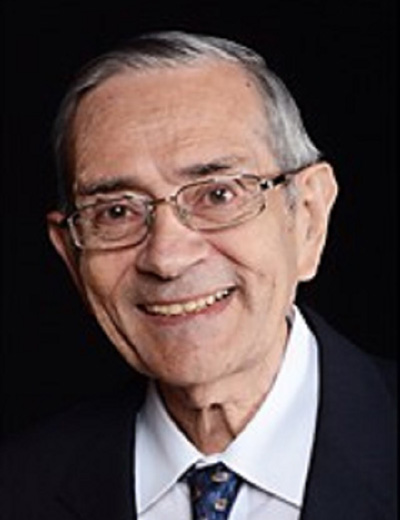In memoriam: Roger Thibert
Roger J. Thibert, a professor emeritus of clinical biochemistry at the University of Windsor, an expert on assay development for medical laboratory diagnostics and a member of the American Society for Biochemistry and Molecular Biology since 1970, died May 30 in Windsor, Ontario Canada. He was 94.

Thibert was born Aug. 29, 1929, in Tecumseh, Ontario, Canada. He attended Assumption College High School and matriculated to Assumption College where he graduated with a BA in 1951. He earned a master’s degree in science from the University of Detroit in 1954 and completed a doctorate at Wayne State University in Detroit in 1958. Thibert received advanced training through a radioisotope technique source at Oak Ridge Institute of Nuclear Studies and a computer science course at the University of Windsor, where he would spend the entirety of his 41-year career.
Thibert authored 130 publications, of which his most cited work focuses on clinical diagnostic chemistry. A 1974 paper described deducing the chemical structure of the red Jaffé chromogen used to measure creatinine in amniotic fluid or the serum of kidney transplant patients. At the time, reliability of the Jaffé colorimetric assay was affected by contaminating chromogenic interferences, and elucidation of the Jaffé chromogen structure could help optimize the assay conditions.
A 1998 paper described a longitudinal study that found carbamylated plasma protein and carbamylated hemoglobin are consistently elevated in blood samples from patients undergoing renal dialysis, demonstrating the viability of carbamylated protein as stable uremic markers.
During his tenure at the University of Windsor, Thibert mentored eight postdoctoral fellows, 25 doctoral students and 35 master’s students, and lectured thousands of students. He created the first clinical chemistry doctoral program in North America and received the Union Carbide Award for Chemical Education from the Chemical Institute of Canada in 1978 and the American Association of Clinical Chemistry Award for Outstanding Efforts in Education and Training in 1980, which was sponsored by SmithKline Clinical Laboratories.
Since 2011, the University of Windsor has awarded Roger Thibert Teaching Excellence Awards for science instructors who show excellence in undergraduate and/or graduate teaching, curriculum development or educational leadership. Eighteen recipients have received the award in the past 13 years.
“I officially retired in 1994 by government mandate, but I’ve never really left,” Thibert said in an interview at the university. “I was still supervising graduate students gratis for five years after that. We teach students of course, but mentoring is also very important — caring about the student as a whole person while they are at the University and beyond. That’s what we’re all about here. Our motto is ‘Teach me goodness, discipline and knowledge,’ that is our mandate, to care not only about yourself but also about your community and others.”
An accomplished jazz guitarist, according to a family obituary, Thibert knew hundreds of standards and was skilled in the manouche style. He also enjoyed watching sports and playing chess.
Thibert is survived by his wife of 70 years, Audrey; sons, Mark Roger and wife Janice and Robert Francis and wife Ilona; four grandchildren; and two great grandchildren.
Enjoy reading ASBMB Today?
Become a member to receive the print edition four times a year and the digital edition monthly.
Learn moreGet the latest from ASBMB Today
Enter your email address, and we’ll send you a weekly email with recent articles, interviews and more.
Latest in People
People highlights or most popular articles

Kiessling wins glycobiology award
She was honored by the Society for Glycobiology for her work on protein–glycan interactions.

2026 ASBMB election results
Meet the new Council members and Nominating Committee member.

Simcox wins SACNAS mentorship award
She was recognized for her sustained excellence in mentorship and was honored at SACNAS’ 2025 National Conference.

From humble beginnings to unlocking lysosomal secrets
Monther Abu–Remaileh will receive the ASBMB’s 2026 Walter A. Shaw Young Investigator Award in Lipid Research at the ASBMB Annual Meeting, March 7-10 in Washington, D.C.

Chemistry meets biology to thwart parasites
Margaret Phillips will receive the Alice and C. C. Wang Award in Molecular Parasitology at the ASBMB Annual Meeting, March 7-10 in Washington, D.C.

ASBMB announces 2026 JBC/Tabor awardees
The seven awardees are first authors of outstanding papers published in 2025 in the Journal of Biological Chemistry.

